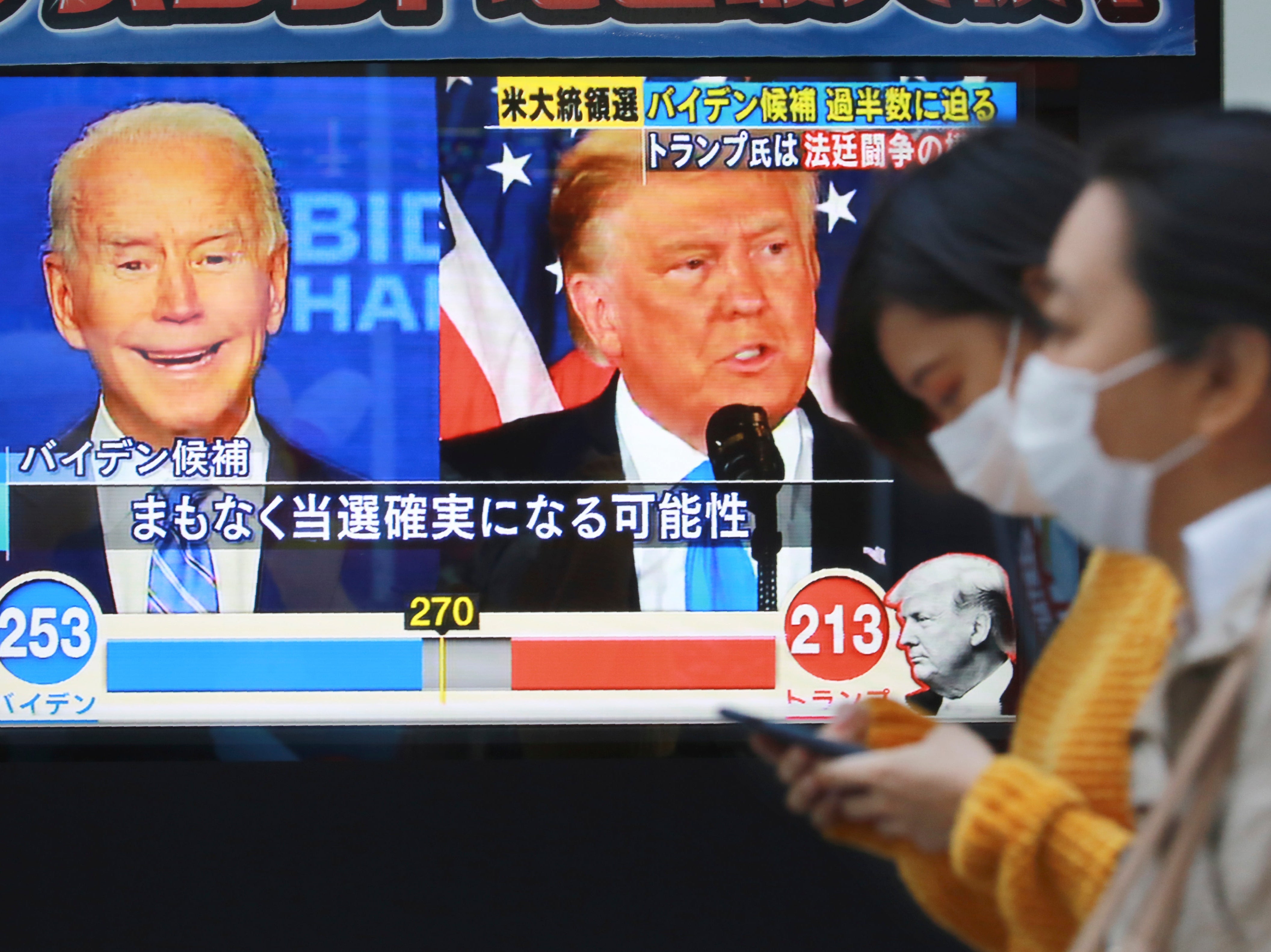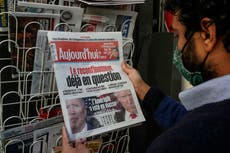What has the election turmoil done to America’s reputation?
The unfortunate conclusion reached by friend and foe alike is that America’s democracy is under strain, writes Sean O’Grady


Many like to think of the United States of America as the world’s oldest democracy, and one of its strongest. Over the decades, America has provided scores of international election observers to oversee fair play everywhere from Nicaragua to Zimbabwe. “We the people...” is the famous phrase that asserts the fount of legitimacy of the American republic, as Joe Biden recently reminded the nation.
Yet now American democracy is once again in crisis, and its enemies are mocking it. The Iranians, hardly a model of good governance, feel free to make fun of the mess that “The Great Satan” has found itself in. Iran’s supreme leader Ayatollah Ali Khamenei is certainly enjoying the show: “If you look at their own situation it’s interesting to watch. The incumbent president, who is supposed to hold the elections, says this is the most rigged US election throughout history. Who says this? The sitting president who is arranging the elections himself. His opponent says Trump intends to widely cheat. This is American democracy.” President Xi and Kim Jong-un are no doubt quietly enjoying the spectacle, though not yet publicly pouring scorn. Nor is Vladimir Putin, whose relationship with Donald Trump is complicated. His allies, though, don’t see why they shouldn’t make the most of it. One of Putin’s MPs said: “The election results are the worst for America. Both candidates declared victory, while Trump also multiple election irregularities. This election certainly won’t have a legitimate outcome. No matter who wins in court, half of Americans won’t consider him the legitimate president”. Alexei Navalny, the opposition leader recently poisoned in a politically motivated attack, was more indulgent towards the messy reality of free elections, compared to the Russian versions: “Woke up to check who won on Twitter. Still unclear. Now that’s what I call elections.” Though unofficial, there’s also plenty of negative comment in the Chinese media, such as this strong statement from a state news service: “The US is not synonymous with a stable, civilised and consensus-based society any more.”
So far there have been few allegations of Russian meddling though, unlike in 2016 when such claims undermined the authority of the Trump victory. Yet malign foreign interference to spread anger and fake news is hardly required when the president himself makes allegations about electoral fraud and theft of elections: Or when he tells Militant supporters to “stand back and stand by” and warns of unrest on the streets if he doesn’t win. When mobs surround places where votes are counted and the head of state calls for the counting of ballots to be (selectively) halted, and launches spurious legal cases to harass Independent civic officials, it is hardly going to impress anyone who cares to look at the majesty of American democracy in action. Not to long ago President Trump wouldn’t confirm a peaceful transition of power if he lost – “we’re going to have to see what happens”, though he later qualified that.
Such is the perceived fragility of the American political system that it is now being subjected to international observance. The Organisation for Security and Co-Operation in Europe judges that the US elections are “tarnished” by legal uncertainty and Donald Trump’s “unprecedented attempts to undermine public trust”: “Baseless allegations of systemic deficiencies, notably by the incumbent president, including on election night, harm public trust in democratic institutions.”
The unfortunate conclusion reached by friend and foe alike, is that America’s democracy is not only under strain but that a significant proportion of its own people, including its president, don’t actually have much respect for it, and don’t value it. Can that be true?
Join our commenting forum
Join thought-provoking conversations, follow other Independent readers and see their replies
Comments
Bookmark popover
Removed from bookmarks